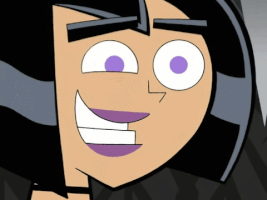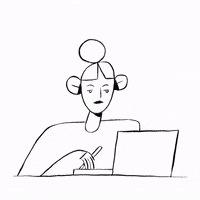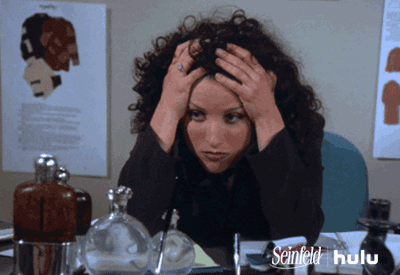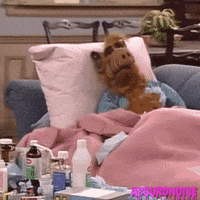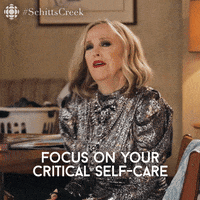What’s So Hot About Burnout?
Hey everyone. How’s it going? Hope you’re having a good week.
It’s your Fairy Blogmother in Dr Martens here and it’s my turn on the blog control system again. I wanted to have a lil chat about burnout and, as you might have guessed from the title, what’s so hot about it? Why does it happen? What does burnout look like? Why does it affect creatives so much? AND what could we do about it?
In my life, both when I was at school and also now in the working world, I have experienced very unsuccessfully managed stress, most likely caused by occupational environments and overworking, leading to physical exhaustion and lack of motivation; or in layman’s terms – Burnout.
Burnout is a very real and very common occurrence and some of us (including this gal right here) didn’t even realise it was a thing until a few years ago – or maybe you might be today years old and just discovering it now - that’s cool. Every day is a school day.
So let’s chat about burnout. According to Mental Health UK, burnout is the ‘state of physical and emotional exhaustion’ that can ‘occur when you experience long-term stress in your job, or when you have worked in a physically or emotionally draining role for a long time.’ It was only in 2020 that burnout was officially recognised by WHO (World Health Organisation) as a ‘globally recognised medical condition’. Whereas as before this, WHO referred to burnout as ‘a stress syndrome’.
WHO characterises burnout by the following criteria:
- Feelings of energy depletion or exhaustion;
- Increased mental distance from one’s job, or feelings of negativism or cynicism related to one’s job; and
- Reduced professional efficacy.
If you read that and know at least one of those feelings, then you too probably understand to some extent the feeling of burnout. Burnout isn’t some two-year-old phrase created by millennials. According to a study conducted, whereby a selection of adults in the UK were asked to pinpoint symptoms of burnout, the results showed 85% correctly identifying symptoms aligned with burnout.
Let’s have a look into why we burnout. As burnout is associated with a prolonged period of stress, mainly in the work environment, a lot of factors that cause burnout may revolve around the workload you have at your job, your relationships with your colleagues etc.
But other factors can contribute to the state of burnout. Worries surrounding, but not limited to, finances, job security, relationships, caring for others and sleep deprivation can fuel burnout. We are all human and we can at times feel uneasy. The future is unknown and that is scary. Burnout can impact an individual’s mental health and subsequently their work and life.
Some people believe that needing help is a weakness, that by asking for assistance will impact how their colleagues, friends, family and those around them, see them. I’m a huge villain for not asking for help. I love being independent, doing things for myself, cracking the code on my own but this comes at the detriment of myself. I have recognised this and am working at getting better at asking for help – it’s not an easy task, trust me.
As with anything, if burnout is left alone, it will only further impact the individual. I have burned out a few times in my life. Mostly when my old pub job was weighing me down because I kept taking on more and more responsibilities. I kept saying ‘Yes’. My friends would see that I was getting sick a lot; catching colds and getting bunked down with flus. They’d warn me to take it easy and maybe relax my foot off the pedal but classic Jess would always say ‘oh don’t worry I’ll be fine’. If life were a movie, that would be the moment where the editor would make a cut scene to me in bed surrounded by a myriad of snot ladened tissues.
But what is so hot about burnout?
Sometimes I wonder whether we have conditioned ourselves to find a sort of glory in burnout. If you’re thinking ‘What is she on about?!’ – Just stick with me here.
I think, as a society, we have partially trained ourselves to believe that we only deserve to take time out because there is physically no other option. That we have become so engrained in the workaholic mentality that taking a break from progressing our work will only impact it negatively. If we are burnt out, labelling ourselves as such, will give us a ‘real’ reason in the eyes of others to take time out. Thus, glorifying the system of working ourselves to the point of utter exhaustion.
This isn’t healthy nor wise. I will put my hands up and say I’ve thought this before. It’s taken me a while to realise that actually it’s okay to take a break. It’s okay to be tired from a hard day’s work. Sometimes we see others streaming ahead, leaping from step to step. Accomplishing every goal they set for themselves. I’ve worked in environments such as the hospitality industry, where if you were only on a 6 hour shift you weren’t allowed to be as tired as someone else who was working an AFD – All F***ing Day for those who haven’t heard it. It’s a hospitality favourite.
This kind of treatment can make you feel that you have to have an excuse to be tired. That you have to prove that you’ve worked hard enough to just yawn when in fact you are bloody knackered and you just need a break.
Comparing two peoples’ days and competing to see who gets to label themselves the most tired or who worked the hardest is toxic, unproductive and ruinous to one’s mental health and physical wellbeing. It just creates competition where it’s not necessary and installs a culture where lack of self-awareness and care is at the forefront.
So, why does it affect creatives so much?
In a study, where a survey was presented to 1,500 musicians and DJs, 66% of creatives had identified themselves of experiencing burnout at least once in their lives.
As a freelance creative, I know the hustle of bringing jobs to your doorstep. The financial pressure of a freelancer, I feel, is one of the biggest contributors of burnout. In the study mentioned above, ‘69% of artists without a supplementary job described working overtime in their chosen field due to low fees’. 85% of creatives have supplement jobs.
The association of being a waitress comes as a hand in hand job for many actors and creatives – me included. Whether it’s working in hospitality, retail, temping, the education system or another occupation. We use these ‘Bread and Butter Jobs’ as a financial safely belt because ‘making it’ as creative is difficult. Or at least until we are able to make the shift over to being a full time creative, these jobs keep our bank accounts afloat.
I’ve known this all too well. I have tapped away late at night on my laptop after coming in from an open ‘til close pub shift; drafting emails to send in the morning, creating contented to be posted, scouring the internet for my next job, maybe even preparing a self-tape to shoot in my break the following day.
But even when I finally made the break away from hospitality to being a fulltime freelancer. Even when I began jumping from job to job. I still found myself trying to cram in every morsel of work I could into each day.
I wasn’t giving myself the time to rest and reset. I was constantly thinking ‘when’s the next job coming in’ or ‘Where is my money coming from?’ which, yes is important, but spending 24 hours trying to make the dream a reality is actually very counterproductive.
Here’s the funny thing. I am currently writing this blog while in a sort of burnout. I am bunged up with a snotty cold and cough.
This is a usual occurrence for me. In the quiet after a really busy period, I usually contract a lovely cold. I would class this for me as a physical burnout.
Mentally I am happy to keep being active but this is a sign from my body that it’s time to chill out. As amazing as it is to be constantly chipping away at the creative block, I find it’s not always what you need.
For me, I am learning to find a balance. A healthy balance between work, play and rest. I have heard many fitness professionals say that if you’re trying to grow muscles, progress happens in the rest time – that the balance of work and rest creates progress and development. So, shouldn’t we apply this structure of balance to our lives in general?
For me, I am learning to find a balance. A healthy balance between work, play and rest. I have heard many fitness professionals say that if you’re trying to grow muscles, progress happens in the rest time – that the balance of work and rest creates progress and development. So, shouldn’t we apply this structure of balance to our lives in general?

